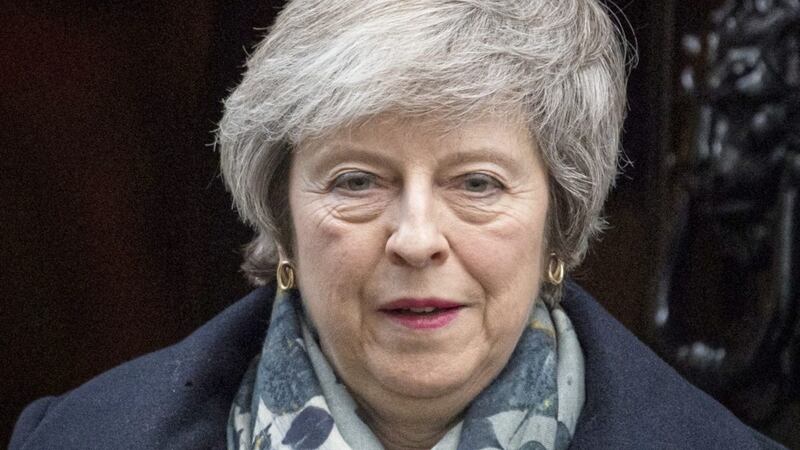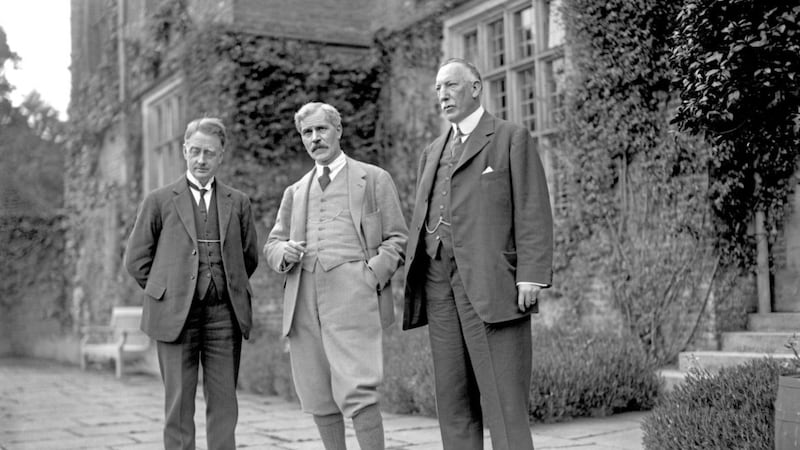People say Brexit has become an orange and green matter as the divisions about the implications of the 2016 vote have widened in the past two and a half years.
The fact is Brexit has always been an orange and green matter that has hardened opinion and contributed to a greater polarisation here than before the ceasefire.
Work by various psephologists like Professors Brendan O’Leary, John Garry and John Coakley demonstrated the sharp divide in the north in the referendum votes. The north may have voted Remain decisively but that was only because a minority of unionists joined the overwhelming majority of nationalists and voted Remain.
The figures are stark: 88 per cent of nationalists voted Remain but only 34 per cent of unionists. If you want it in terms of religious denomination, 85 per cent of self-declared Catholics voted Remain but only 40 per cent of self-declared Protestants.
The only difference between the two ethno-national groups was within unionism. Unionists followed the English voting pattern. Those highly educated tended to vote Remain: 80 per cent of unionists with a postgraduate degree and 71 per cent with a degree voted Remain. Less than 50 per cent of those with GCSE or lower qualification voted Remain.
Among nationalists there was no such marked division. It was largely an all-class Remain vote. That indicates that for nationalists the issue assumed existential proportions.
Breaking it down even further however, the indications are that for DUP supporters and voters Brexit is also an existential issue. Surveys in 2018 show that DUP voters overwhelmingly support the DUP position. It’s not a case of the ten DUP MPs tail wagging the party dog. To believe otherwise is wishful thinking.
There’s worse. The ‘Future of England’ survey, a continuous survey conducted by Edinburgh and Cardiff universities, published in October, showed that the vast majority of DUP voters believe that the collapse of the peace process is an acceptable price to pay for Brexit. The same is true about a hard border. Brexit is all that matters. Perhaps more surprisingly, 86 per cent also believe Scottish independence is worth it as long as Brexit is delivered. When you get figures up around the 80 per cent mark in surveys you can be sure that, even with a margin of error, they’re accurate reflections of opinion.
What is interesting is that these extremist views are also shared by English Conservatives, a small group in the English population whose main belief, like the DUP’s, is for a magical time machine that will transport them back to the 1950s, or in the case of the DUP, preferably to the penal laws. Of English Tories, 75 per cent think the collapse of the peace process and Scottish independence are acceptable prices for a hard Brexit. In other words, the malign alliance between the DUP and the far right Conservative empire loyalists like Rees-Mogg and Johnson is not a marriage of convenience but a natural partnership.
There is a worm in the apple though. The majority of these same Conservatives don’t think Scottish MPs should have a right to vote in Westminster, but even more significantly, they don’t want to pay subsidies to, or for, either Scotland or the north. Virulently anti-immigrant, for them, it’s England for the English.
It’s crystal clear from those figures that appeals to inevitable economic catastrophe after March 29 carry no weight with these people. DUP supporters are voting with their eyes open for a poorer life and poorer life chances for their children. All the representative bodies of trade, commerce and agriculture can line up and cry, ‘Woe, woe, and thrice woe’, but daft ideology trumps economics in the fantasy DUP world.
The dread fact is that the Brextremists in the Conservative party and DUP have Theresa May by the short and curlies. Her series of disastrous mistakes since January 2017 have led her into an impasse. OK, she says no second referendum now, but she has broken every promise she made since 2016. Don’t hold your breath though. She seems determined to press on, knowing she wouldn’t get anything, including a second referendum, through Westminster.
Right now she has only three options: get her deal passed – impossible, delay or cancel Brexit – impossible, crash out on March 29 – looking increasingly likely. Well, she does want to please the DUP.








